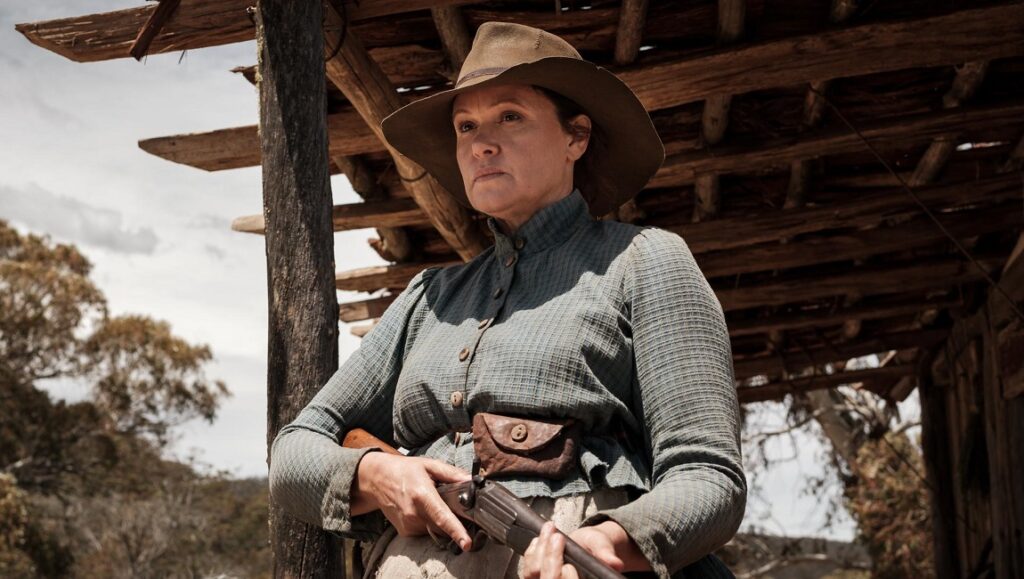The Legend of Molly Johnson can skew a bit too on-the-nose at times, but it remains a bold, uncompromising work and the best kind of revisionist western.
Adapted from her own 2016 play, itself loosely based on the short story by Henry Lawson (largely considered a canonical text of Australian literature), Leah Purcell’s The Legend of Molly Johnson is the best kind of revisionist western. Lawson’s original story is a kind of paean to the suffering and perseverance of White settlers, with no place for the consideration of Aboriginal peoples, an oversight that Purcell corrects with her story of racist and misogynist violence in 19th-century Australian frontier life. Purcell, in addition to writing and directing, stars as the eponymous Molly Johnson, who as the film begins is heavily pregnant and tending to four children while her husband, a drover, is away on a job. When two British travelers, Nate and Louisa Clintoff (Sam Reid & Jessica De Gouw), stumble upon her home while begging for food and directions to the town of Everton, it kicks off a series of events that lead to a tragic, disastrous conclusion. Nate is set to become the constable of Everton, a lawless place that nonetheless represents the closest thing to civilization in the area. Louisa fancies herself a progressive writer, eager to produce for the town a newspaper touting feminist ideas. Molly feeds the travelers, and then asks them to squire her children to a friend who lives along the way so that she can give birth in peace. After the children and the Clintoffs take their leave, Molly is set upon by an escaped convict, Yadaka (Rob Collins). The two are standoffish at first, until Molly’s water breaks and Yadaka offers to help her deliver the baby. Meanwhile, in Everton, Nate is made aware of both Yadaka’s escape, as well as the fact that Molly’s husband missed the drive and hasn’t been seen by anyone in weeks.
There’s a lot going on here, as Purcell details the growing bond between Yadaka and Molly, the Clintoffs’ settling into the local town life, Molly’s ancestral lineage, the mystery of her missing husband, and the encroaching threat of the husband’s unsavory friends who are curious as to his whereabouts. Working with cinematographer Mark Wareham, Purcell conjures up barren, foreboding landscapes, a vision of the Outback that might as well be the surface of the moon. Violence lurks around every corner, and when circumstances conspire to wrench Molly’s children away from her, she fights back against ingrained prejudices to recover them, no matter what the cost. At its best, The Legend of Molly Johnson recalls both The Proposition and, especially, The Nightingale, another film that recognizes the shared plight of women and indigenous people under the heel of patriarchal and homogenous White society. It’s not a perfect film; Purcell leans too heavily on an oppressively on-the-nose score, papering scenes with wall-to-wall music that too frequently underlines emotions that will be already obvious to even the most oblivious viewer, and Collins’ unique energy is sorely missed once his character exits the narrative. Still, Purcell is monumental in the lead role, and her vision of a racist, unjust society is still disturbingly relevant in what is a bold, uncompromising work.
Originally published as part of SXSW Film Festival 2021 — Dispatch 4.


Comments are closed.